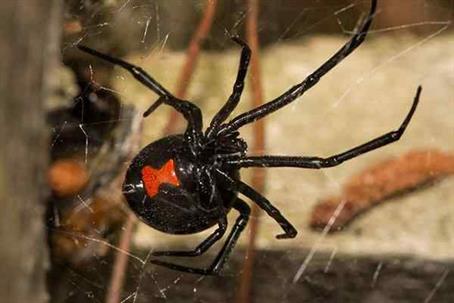Why Even Non-Venomous Texas Spiders Can Be Dangerous Pests
When you find a black widow under a pile of brush in your yard, you don't need anyone to tell you that you have a problem. The bite from a black widow spider has the potential to send you or someone you love to the hospital. When you see a brown recluse run across your living room floor and disappear under your couch, you're not going to scratch your head and wonder if it might be a good idea to call a professional. A brown recluse infestation in your home can become serious. If a recluse spider bites you in the wrong location, it could lead to a disfiguring wound. But, for some reason, non-venomous spiders often get a free pass. If you're tempted to ignore the presence of non-venomous spiders, here are a few things you should know.
It is important to understand the term non-venomous, as it relates to pest spiders. Almost all spiders have venom excluding spiders in the family Uloboridae, which is in the classification of orb-weaver spider. These would be the only spiders that are truly non-venomous. But when a pest professional talks about non-venomous spiders, they are referring to the nature of the venom, not its existence. The word venom and poison are almost synonymous. Black widows are venomous because their venom is dangerous to us. Wolf spiders are non-venomous because their venom is not generally dangerous. But some individuals are allergic to spider venom and have the potential to go into anaphylactic shock. It is rare, but it does happen and it is dangerous. This is the most important point we'd like to make. Just because a spider isn't considered venomous, it still has venom, it may still be able to bite and it could still cause serious harm to a child or adult who has an allergy.
Most of the time, a non-venomous spider will do nothing more than just leave a red, itchy welt on your skin. Depending on what spider bites you, there may also be localized pain. Some non-venomous spiders can cause intense pain that some people compare to the sting of a bee or a wasp. While you're not going to have to go to the hospital, it is certainly unpleasant.
Non-venomous spiders do not prefer to bite people. Bites happen by accident, usually during the night when a spider accidentally crawls on the skin of a sleeping individual and is suddenly startled. Daytime bites aren't nearly as common as nighttime bites, but they do happen. If you're in your garden and you don't realize a spider has touched down on your shirt, you may be in for a surprise.
Some non-venomous spiders don't bite humans. While all spiders have fangs, some have fangs that are just too small to break the skin of a human— well, that is the prevailing understanding, at least. Studies are still being conducted. One spider that is known for not being able to bite is the daddy long-leg, which is a common cellar spider.
While we certainly don't think anyone should be fearful of spiders, even venomous Texas spiders, it is a good idea to keep them out of our homes. It is also a good idea to take measures to reduce spider populations on your property. The more spiders there are around your home, the more likely you are to obtain a spider infection.
One of the services we provide with our residential and commercial pest control plans is the reduction of spiders and the removal of webs around structures. During routine visits, your pest control technician will identify pest pressures around your property, apply appropriate treatments to manage a wide range of pests, and inform you of any threats that are detected, such as the presence of black widows or brown recluse spiders. Your technician will also inform you of factors that can create a challenge for spider reduction such as areas of high moisture, debris near structures, outdoor lighting, etc.
With your pest control service, you can get coverage for other pests that have the potential to be harmful. When it comes to causing illness, spiders don't have anything on mice, rats, and ticks. Get your protection in place today. Reach out to us and schedule a free inspection to get started.

